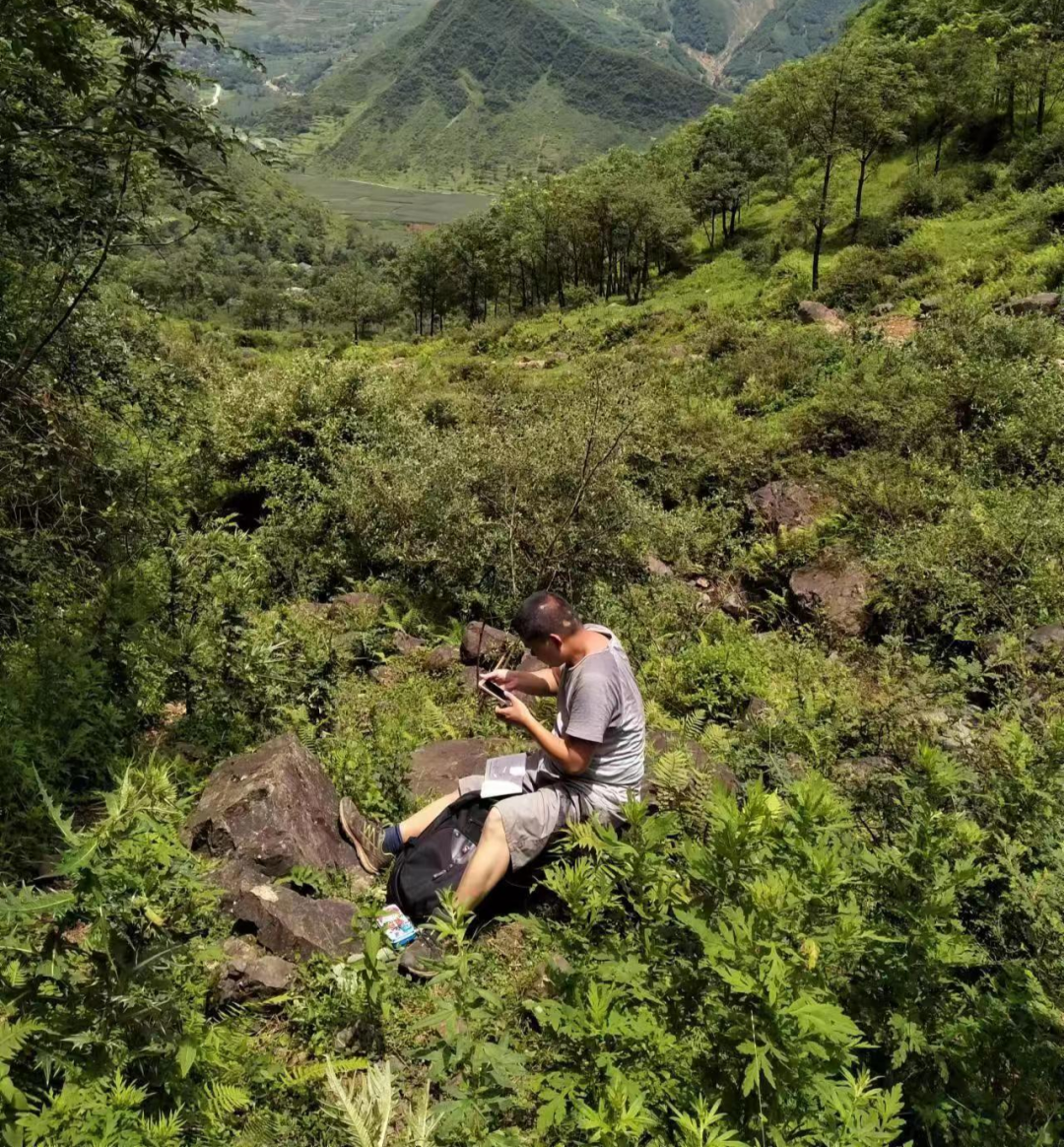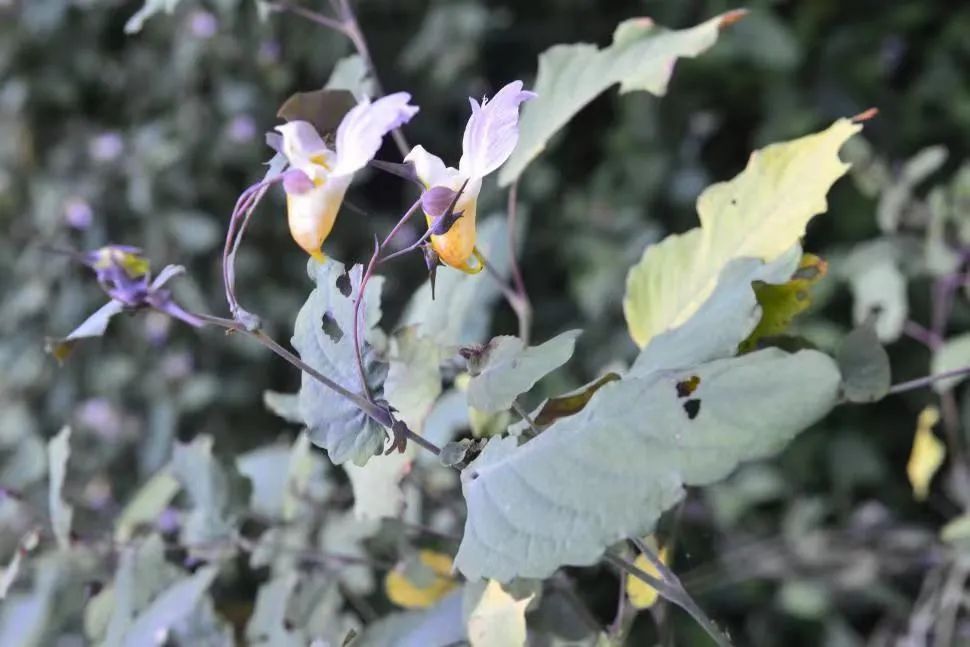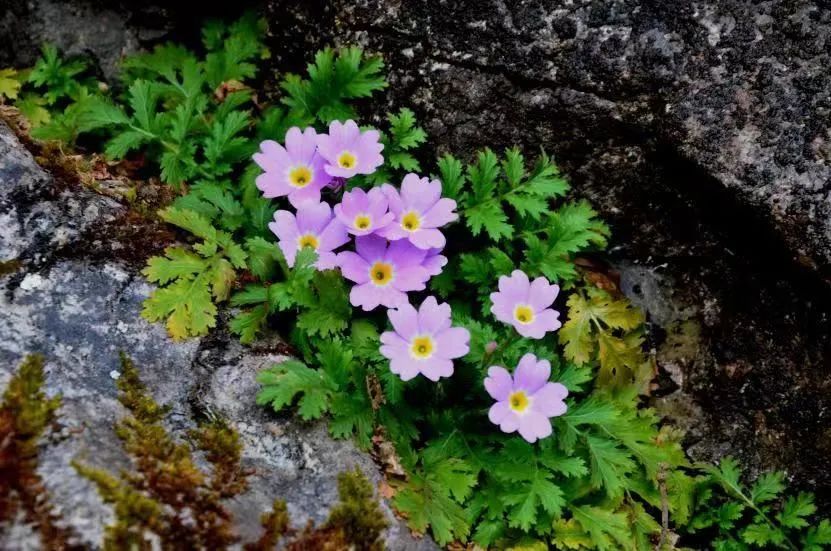This person is known as Holmes in the mountains
Author:Journal of China Science Time:2022.06.30
Wen | Jing Huaiqiao
"China Science News" reporter Li Yun
It is definitely a very interesting thing to discover the new species and name it yourself.
Behind the discovery is the meticulous job of drawing cocoon: not only to find clues in the mountains, but also to form a complete "evidence chain" in the laboratory, and finally discover the "truth" of the new species.
Li Xinwei, an associate researcher at Wuhan Botanical Garden of the Chinese Academy of Sciences, is the "Detective Holmes" in the mountains. He and the collaborators have discovered 16 new species since 2010.

In 2018, Li Xinwei conducted field investigations in Wuzhai Village, Zhaotong, Yunnan.

Li Xinwei waited for Shenglan Fengxian flower published in 2020.

Photo of Hubei Yuye Spring Wuhan Botanical Garden
Finding new species is individual work
At 7 o'clock in the morning, it is the time for many birds to find food.
Li Xinwei packed his equipment and prepared for the mountain.
"In the study of botanical classification, it is commonplace in the field. During the peak, more than half of the year ran on the mountain." Li Xinwei said.
Li Xinwei is mainly active in mountains and forests in Hubei.
At 8 o'clock in the morning, he went up the mountain under the leadership of the local villagers and started a day of work.
"Only when you really go up the mountain can you know what is the eighteen bend of the mountain road. Even the new species you have discovered, there are GPS points with precise latitude and longitude, and you may not find it when you encounter fog and rain. Therefore, the local guide is very important. "Li Xinwei said, usually he had to go down the mountain until it was dark.
Outdoor work from 9 to 10 hours a day, climbing equipment is even more important. In his backpacks, the cameras, specimen clamps, magnifying glass and other equipment are conventional configuration.
"The equipment on the mountain should be as light as possible, but the total weight of the entire package starts at 10 pounds. Because it is necessary to reserve space to carry fresh water, it usually takes 2 bottles, and it will double the humid and heat environment like Yunnan." Plant classification for more than 20 years Experience has allowed Li Xinwei to accumulate a lot of field survival skills.
In his opinion, work in the wild must keep up with.
"Climbing 1000 meters of mountains is equivalent to climbing a 300 -story tall building." Li Xinwei said that the stones on the mountain road are very slippery and there are many thorns.
Usually, you can walk on the longest 25 to 30 kilometers of mountain roads a day, but physical consumption is not usually comparable.
On the mountain, crossing the bamboo forest is his most painful time.
"The bamboo forests on the mountain are dense and sweltering. It is easy to sweat on the mountain road. The bamboo leaves fall on the body and cannot be shirtless." And this situation is unusual in the inspection of western Hubei and Chongqing.
The road is for a better discovery. In one day of work, taking pictures, data collection, suppression specimens, etc. are all highlights.
How to discover the different characteristics of plants in a complex environment and test the eye strength.
"Some species are well recognized, such as Shenglan Fengxianhua. The first seeing the plant is more than 3 meters high. The color of the plant type and the stalks is different from the known species. In the year, Li Xinwei published a new species of Shenglan Fengxian flower discovered in Zhuxi, Hubei. It is currently the highest plant in the phoenix flower in my country.
But more often, the clues of new species need to be inspected.
Sometimes in order to obtain a reliable and complete form, waiting, and ecological data, you need to repeatedly enter the mountains to observe and collect it, and conduct a cultivation test. The cycle is as long as ten years.
This year, the new species published by Li Xinwei is anti -rolling. The first time I saw this plant was Shiyan, Hubei in 2010.
"Every kind of plant has its unique beauty, which makes me always curious about the plants and hope to explore and study in -depth." Li Xinwei said about the reason for discovering new species.
High -frequency "upper new" witness biological diversity
"In the eyes of ordinary people, it may be a grass. But in botology, these new species represent the richness of biodiversity."
Li Xinwei said that if you can't appreciate the unique beauty on each plant, it may be difficult to do a good job of protection.
In recent years, with the enhancement of the awareness of the protection of the whole society, local protection represented by the protected areas and national parks and the relocation protection represented by the botanical garden complement each other, and the system is more complete.
At present, there are about 24,000 kinds of relocated plants in China.
The degree of threats of plant diversity is constantly decreasing, and more and more endangered plants have been effectively protected.
Some species that were considered disappearing in the past appeared again.
Xiao Gouer Tea was discovered for the first time in Xingshan, Hubei in 1907, and has been discovered for the first time in Xingshan, Hubei. No one has discovered it for nearly a hundred years, and was once considered extinct.
In 2001, Jiang Mingxi, a researcher at Wuhan Botanical Garden, re -discovered this in Hubei Wufeng.
"Behind these findings not only enrich the Chinese plant maps, but also reflect the changes in the ecological environment from the side." Li Xinwei said that the most common animal is wild boar now.
Several times, he also had a close contact with the wild boar.
In addition, in the scientific research, a lot of experience with the rangal, the statlus, and the yellow throat marten has a lot of experience.
"It is often a black shadow out of the forest. It was difficult to see antelope and forest musk before, and now it is more common." He said.
There are more wild animals, and scientific research needs to be extra careful.
"In the past, the Black Bear ran away when he saw humans, because he was afraid of being hunting. Now, when we see that the black bear will be far away, we are worried about being attacked." In Li Xinwei, these shows that in recent years Pay attention to the restoration of the ecology. "When investigating the plants in the wild, I saw many birds. Now I can call the names of several common birds, such as red mouth blue, white 鹇, and horns."
Li Xinwei said that while the ecological environment has improved, people's awareness of environmental protection is getting stronger and stronger. Now, the Wild Scholars Examination will be jointly carried out with the local reserves. "Everyone wants to find out the bottom of the family, and the work of scientific researchers is more convenient."
"Discovering new species is just the beginning of a lot of work." Li Xinwei said that today, people not only pay attention to the protection of rare plants, but also the breeding of rare plants, expand more offspring, and help them return to the mountain forests, expand the number of fields in the wild population, Essence
In the future, in addition to maintaining concerns about suspected new groups, Li Xinwei will also deeply understand the types of plant types, habits, distribution, survival status, use, and reproduction and cultivation technology. Through plant conservation and display, public plant protection awareness is improved.
not
"China Science News" (2022-06-30 The original title of the original title "He is Holmes in the Mountains")
not
Edit | Zhao Lu
Capture | Guo Gang

- END -
How did the magician know the numbers in your mind?

Read the following articles carefully, and think about the questions raised at the...
Corn straw transforms!See how the "garbage" used to purify the water body?

The original clear lake became strange colors, and it exudes a bad smell? The smal...